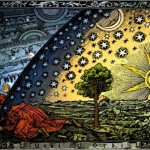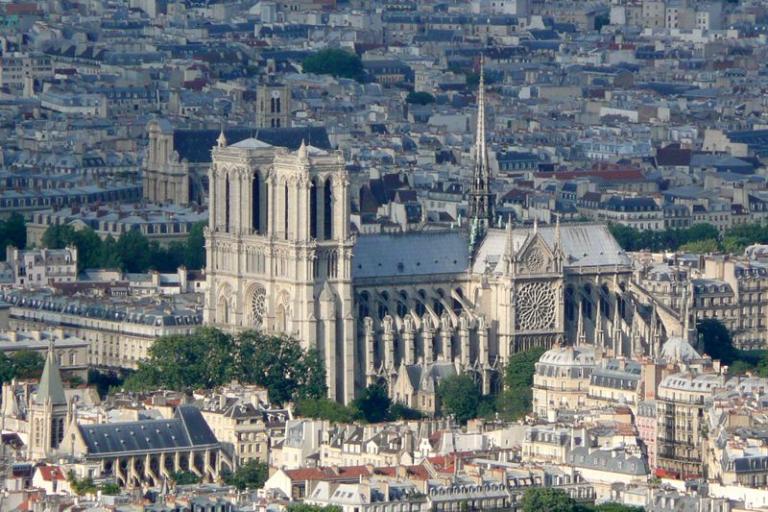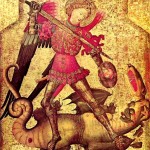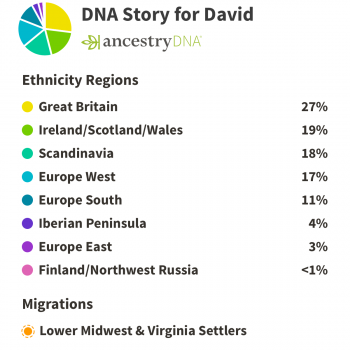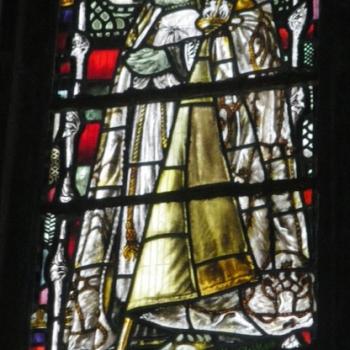David Russell Mosley
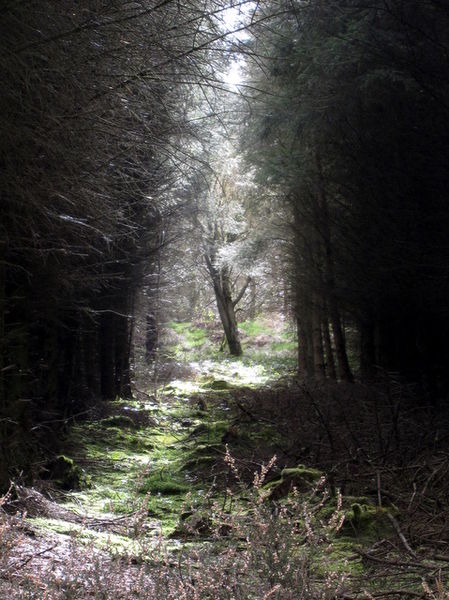
English: Light in the forest A shaft of sunlight through the dark forest of Coed Moel Famau highlights a single tree.
Date 8 April 2009
Source From geograph.org.uk
Author John S Turner
(CC BY-SA 2.0)
Ordinary Time
14 June 2017
The Edge of Elfland
Manchester, New Hampshire
Dear Readers,
One of my recent letters, “I Am Not a Convert,” earned an unusual amount of comment for one of my posts. Many people took umbrage with my use of the term, particularly as I used it in a somewhat totalizing way. There were some few, some happy few, who agreed with me. So I wanted to dig into this question a little further and even to subvert my original point by saying that: everyone is a convert.
It really all depends on how you use the word, what connotations you’re bringing with it and this depends both on the speaker and the listener. When I made the bold claim that I am not a convert, my point was more of a liturgical one. That is, what happens to a Protestant being received into the Church is different from what happens to a non-Christian (or at least, to someone who has not been baptized). Liturgically speaking, my reception and confirmation were more akin to what happens to a cradle Catholic than to a “convert”. This is because the Catholic Church recognizes me and my fellows as already Christian and in need of different, or fewer, rites and sacraments than a non-Christian.
Other the hand, I am absolutely a convert, everyone is. One of my favorite responses came from a Benedictine priest who I count among my acquaintances. He told me that Benedictines take a vow of conversion. They remain, perpetually (albeit temporally) in the process of conversion. I love this because no one is ever done with conversion. Even the cradle Catholic is, in this sense, a convert. We have all been brought out of our original sin into a new relationship with Christ, usually not possible without the sacrament of baptism (exceptions such as martyrdom and Emeth notwithstanding). We all of us are pilgrims in this life, heading toward our Homeland. We are not done, the process of converting us from hearts of stone to hearts of flesh is not (for most of us) finished in this life (and for most of us it will not be finished in the next either, which is why Purgatory exists).
I remember once watching a video Metropolitan Kallistos Ware speaking at Wheaton College on the relationship between Evangelicals and the Orthodox. He told a story about riding a train whilst dressed in his cassock, with his large cross. A man sat across from him, noticed the enormous cross and asked (in what the good Metropolitan made sound like a Southern accent), “Are you saved?” To which Ware replied, after giving it some thought, “I am being saved.” Christianity is, in this life, a pilgrimage. We are headed toward the Beatific Vision, but none of us is done. Each of us is still plodding along through valleys and hills, storms and sunshine, ever hoping to find our way Home. So in this sense, we’re all converts.
I can’t sit here and say that the language of conversion, when speaking of Protestants who received into full communion with the Catholic Church, sits well with me. And this is despite the fact that many Protestants and prominent people from within the Church have used this language. It seems, at least in modern usage, to connote things I think are wrong about what is actually happening when a Protestant “becomes” Catholic. Nevertheless, I am happy and proud to be one such former Protestant. I am happy to have ceased my protestations. And I am happy to be, like all other Christians, still in the process of conversion. I am happy to be, even when it hurts, like Lewis’s toy soldier who is being made flesh, or his cottage that is being turned into a mansion. I long for my transformation, for my final conversion. In the meantime, I will continue to plod along. I pray you’ll join me.
Sincerely,
David


